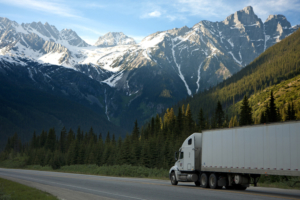Due to a focus on environmental issues in the last decade, the transportation industry has been increasingly focused on sustainability. There has been a pressing need to reduce environmental impact with the demands of a growing global economy.
There is no denying the fact that climate change is real, and so is resource depletion. It is crucial to create sustainable solutions within the transportation industry.
Just how badly is climate change affecting the planet? The global climate damage cost is $38 trillion as of 2024, according to Forbes.
We explore innovative practices and strategies that transportation companies are implementing to build a more sustainable path going forward.
The Shift Towards Eco-Friendly Vehicles
The traditional fleet of diesel and gasoline-powered vehicles is one of the major contributing factors to carbon emissions.
To address this, companies are transitioning to eco-friendly alternatives, such as electric cars and hybrid trucks. There are noteworthy environmental benefits from these options, such as lower greenhouse gas emissions and reduced carbon footprint.
For example, DHL and UPS have invested heavily in electric delivery vans. They plan to transform many of their fleet in the next five years. This is a sustainable win-win because apart from environmental benefits, this also reduces fuel dependency and cuts the vehicle’s operational costs.
Optimized Route Planning for Reduced Emissions
The efficiency of routes directly impacts a fleet’s fuel consumption and emissions. Route optimization technology, with the help of GPS integration and AI-driven analytics, enables flees to take less congested and shorter paths. This helps in minimizing fuel and also saves time.
Studies show that optimized routes can decrease fuel consumption. This also helps the fleets make timely deliveries and ensure high service standards. The benefits are multi-fold because this also results in minimal environmental impact.
Sustainable Facilities and Infrastructure
As the number of commercial vehicles increases, there is a need for designated facilities that provide secure parking for drivers. These facilities are increasingly designed to be sustainable and have features like solar-powered lighting, water conservation, and eco-friendly building materials.
Big Rig Parking recommends strategically located facilities for large commercial vehicles. The reason is simple: accessibility and convenience.
These types of spaces, which are often available through simple searches like ‘truck parking near me,’ contribute to lower fuel consumption by cutting down on unnecessary travel.
Renewable Energy in Transportation Facilities
Renewable energy is the central pillar of sustainable transportation infrastructure. Charging stations powered by solar panels and wind energy are emerging across the nation, providing environmentally friendly charging options to EVs.
Also, most transportation hubs and rest stops built today utilize renewable energy for their operational needs. This contributes to the overall sustainability of the industry.
For example, in Europe, certain rest shops are equipped with solar panels to power the facilities and supply excess energy back to the grid. This is a win-win for green energy solutions.
Incentivizing Idle-Time Reduction Practices
Carbon emissions, particularly for large commercial vehicles, are often because of fuel wastage during idle time.
Companies are implementing idle reduction policies that incentivize drivers to limit idle time during stops. This helps drastically cut down emissions and prolongs the vehicle’s life by reducing wear and tear.
New technologies like advanced ideal management automatically turn off the vehicle’s engine after a set period of inactivity.
The Human Factor
Sustainable transportation is more than just green practices. It also considers a driver’s well-being, which is crucial for long-term industry health.
A comfortable and accessible parking option ensures that drivers have a safe place to rest. This improves their health and reduces fatigue, ultimately leading to safer roads. This also reduces unauthorized stops, enhancing overall efficiency.
Companies are also joining forces with suppliers and logistics providers to share best practices. These collaborations include shared investments in green technology, joint initiatives, and the minimization of packaging waste.
For example, the SmartWay program by the US Environmental Protection Agency brings together organizations across the transportation industry and promotes cleaner and more efficient green initiatives.
Sustainable Transportation Matters for the Future
The move towards sustainability in the transportation industry is no longer optional. It is crucial for the efficiency of our supply chain and for a greener planet.
Many of these new practices will likely become the new norm driven by environmental urgency and economic factors.
Companies with an eye to the future are already experiencing the benefits of these innovations. By investing in cleaner fuels and the latest logistics technologies, they are leading the way in creating a greener future for transportation.




